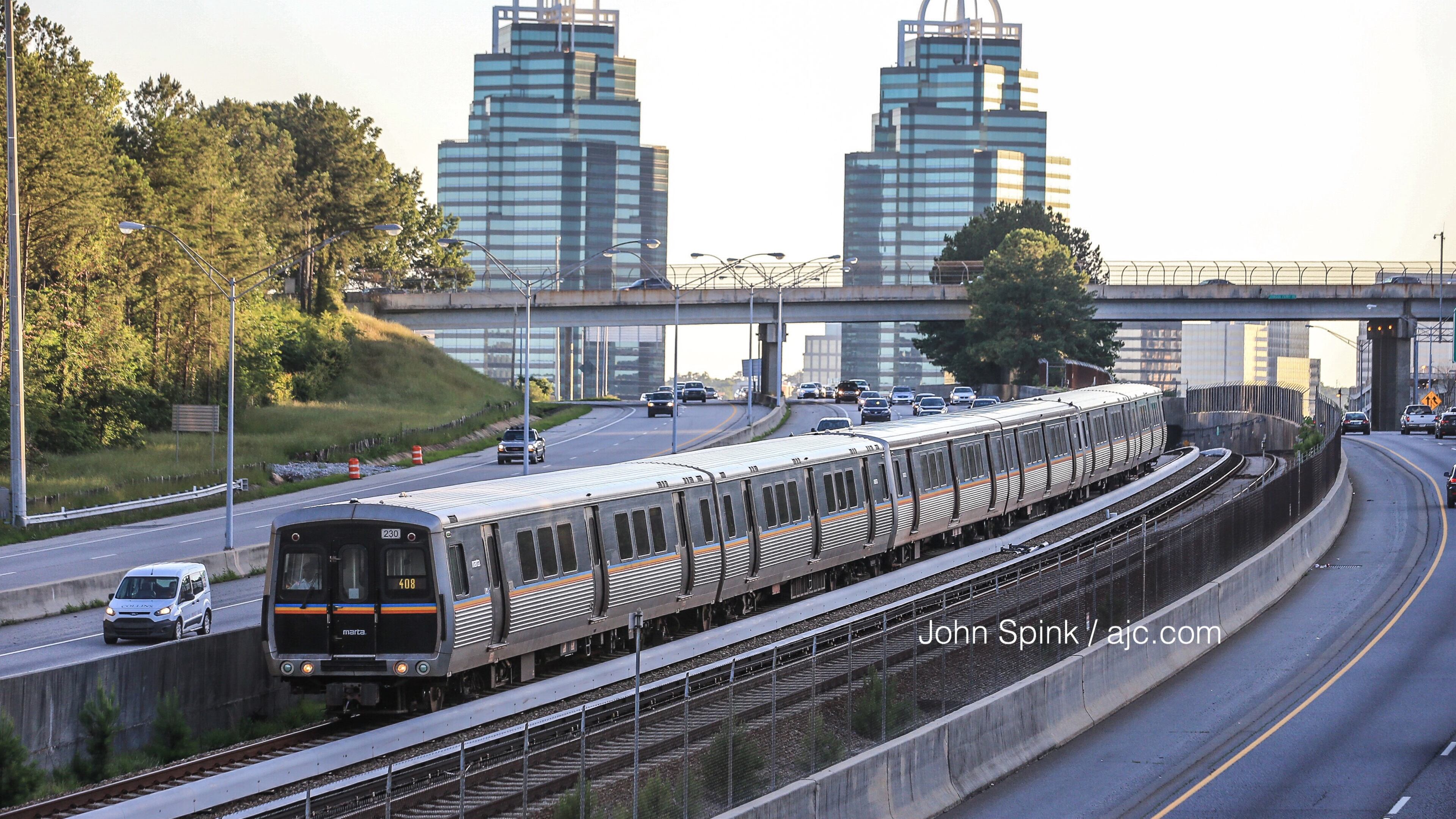Opinion: A transit ‘moonshot’ for metro Atlanta

MARTA’s CEO Jeffrey A. Parker used the word “moonshot” in calling on the Atlanta region to run even harder toward new projects to boost mobility here.
Those of a certain age will remember the Apollo spaceflights of 50 years ago that sparked Americans’ imagination and pride in a manner hard to imagine today. The nation benefited from technological gains as well as a renewed spirit that, literally, the sky was the limit to what we could achieve.
Seen in that light, Parker’s audacious ask for $100 billion over 40 years in regional transit and related technology spending should serve as a conversation-starter for a metro area that rocketed into international acclaim by being audacious and innovative at the right junctures in history. We didn’t add a million people a decade for nearly half a century by being overly risk-averse, we believe.
No one, including MARTA’s Parker, thinks that $100 billion is an easy ask. A dollar spent on transit won’t be spent elsewhere. And fiscal prudence has often served Georgia well.
Admittedly, too, the derailment Tuesday night of an empty MARTA train at Hartsfield-Jackson International Airport and the service delays it caused rightly raise questions about the agency’s ability to deliver, especially with the Super Bowl just days away.
That said, a place proud of noting it’s the best locale in the nation to do business should appreciate that Parker’s broad point seems grounded in economic principles of supply and demand.
Metro Atlanta and Georgia are growing, ratcheting up mobility needs. Newcomers don’t expect unreasonable delays on travel for work and pleasure. Businesses need free-flowing roads to move product in this era of just-in-time logistics.
That demand will rise in lockstep with population. On the other side of the scale is supply, as in how well our transportation networks meet current and future needs.
Of late, this region, and state, have made some strong efforts to improve how we get around. This comes after years of underinvestment. A hard-won state fuel tax is paying for needed road improvements. And the Gold Dome stepped up in a big way last year to create The Atlanta Transit Link Authority to facilitate transit improvements across the region. The state’s even put $100 million toward future bus rapid transit along Georgia 400.
All of these are noteworthy, but we believe Parker’s on to something in asserting that they’re not enough. Not for a region projected to grow by nearly 50 percent in coming decades – a rate outpacing all but two other U.S. metros, Parker noted in his State of MARTA address this month. That means demand for both more-open roads and better transit.
It would thus be a mistake to laugh off Parker’s “moonshot” as a public-sector pipe dream in a deeply conservative state. Traffic gridlock shows no political favoritism; it hinders workers and employers alike, wasting dollars, time and potentially profitable opportunities.
A pro-business state should understand competition. So it should be instructive that slower-growing peer metros around the U.S. are making transit investments that dwarf ours. That should get our attention. In Parker’s address, he said, “Consider Los Angeles, which will only grow by 11 percent over the next 30 years — they are committed to building $120 billion in transformative transit projects over the next 40 years, and Seattle, growing at 30 percent, has recently decided to invest more than $50 billion over 25 years”
And as for that $100 billion ask here? Consider it as we believe Parker does – as an opening point. It should get us thinking about how to optimally invest for future growth. What should the next infrastructure funding steps look like? Parker’s correct in that a mix of local, state, federal and private dollars would be needed.
Unsaid but implicit in Parker’s proposal is that an end-point may spend less than $100 billion — but it should also be more than is on the project books today.
The Atlanta region seems already on its way toward part of this future. Gwinnett County will take a landmark transit vote in March and Cobb County is also talking about transit.
To maximize a prosperous future that seems in the cards for this metro, we must be willing to dream and build aggressively toward it, we believe.
Andre Jackson, for the Editorial Board.


